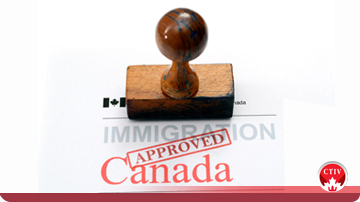Canada is well known for its spacious countryside, cultural diversity, superior education, healthcare system and economic stability, has one of the highest immigration rates and is considered one of the most popular destinations for Immigrants.
Proof of Relationship - Spouse or Common-law partner Sponsorship Canada
Proof of Relationship - Sponsorship Spouse or common law partner Canada
The government requires sufficient evidence to be presented to the immigration officials to establish that you are living in a genuine relationship. We normally get the question, what documents to submit to show proof of relationship or genuineness of relationship for a spousal sponsorship application for permanent residence to Canada. Let's start by giving ourselves some insight into what constitutes marriage of convenience and bad faith relationships, which should help elucidate some of the reasons for submitting these supporting documents
It is illegal to enter into a relationship for mere immigration purposes. Before conceding the necessity of sponsoring your spouse or common-law partner, the government requires proof that such a relationship is genuine. Immigration authorities make this assessment based on whether the relationship was formed to a large extent for immigration purposes with the view to ensure that the union is not a mere ''marriage of convenience'' or that their ''relationship is not one made in bad faith''.
Section 4 of the IRPR (Immigration and Refugee Protection Regulations) prohibits bad faith relationships and states:
4(1) For the purposes of these Regulations, a foreign national shall not be considered a spouse, a common-law partner, or a conjugal partner of a person if the marriage, common-law partnership or conjugal partnership was
(a) primarily entered into in order to acquire any status or privilege under the Act, or
(b) not considered to be genuine.
Factors for Determining Genuineness of Relationship
Burden of Proof
When reviewing a sponsorship application, visa officers see that there is a “burden of proof” to ascertain the genuineness of a relationship. This means that the burden is on an applicant to prove, by clear and convincing evidence, that their relationship was legitimate and not merely opportunistic for immigration status.
Procedural fairness letters will be sent from visa officers when they are unable to ascertain whether a relationship is bona fide. This explains the areas of concern and will request that the applicant provides further evidence that proves that the relationship is genuine. The applicant should respond to a procedural fairness letter substantively, including the documents requested, if possible, well within the timeline given. Further, the applicant must explain any discrepancies between their evidence and their sponsor's declarations. A procedural fairness letter that is not responded to could put a sponsorship application in jeopardy.

Canada is well known for its spacious countryside, cultural diversity, superior education, healthcare system and economic stability, has one of the highest immigration rates and is considered one of the most popular destinations for Immigrants.

Canada offers several business immigration options for individuals who want to start or invest in a business in the country. These options include the following: